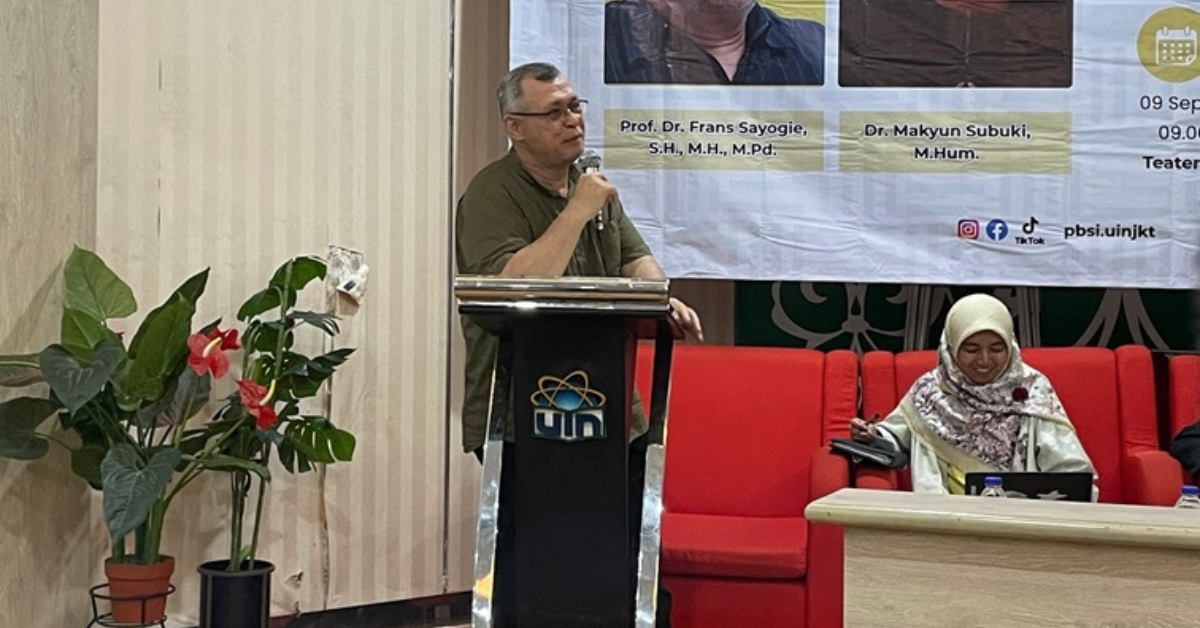When Language Meets Law: FITK UIN Jakarta Students Dive Into Forensic Linguistics
Ciputat, UIN Online News — The Faculty of Educational Sciences and Teacher Training (FITK) of Syarif Hidayatullah State Islamic University Jakarta, through its Indonesian Language and Literature Education Program (PBSI), hosted a public lecture on Forensic Linguistics on Tuesday (August 9, 2025) at the Mahmud Yunus Theater.
In her opening remarks, Dean of FITK Prof. Siti Nurul Azkiyah expressed appreciation for the initiative and emphasized the importance of students engaging in academic forums.
“On behalf of the faculty, I extend my gratitude and pride for your participation. We encourage our students to remain enthusiastic and active in taking part in various academic programs organized by the faculty and study programs,” she opened.
Then, PBSI Program Chair Dr. Ahmad Bahtiar underlined that PBSI does not only prepare future educators but also opens pathways to other professions connected to language expertise, including serving as educated witnesses in court.
“The mastery of linguistics becomes a valuable skill applicable in education, law, and various professional sectors. Luckily, this study program is supported by experts in linguistics,” he noted.
Delivering the first lecture, Prof. Frans Sayogie introduced the basic concepts of forensic linguistics as defined in the Indonesian Dictionary (KBBI); it is a branch of linguistics closely tied to law, crime investigation, court proceedings, and judicial processes.
“Any kind of approach is a helpful tool to law enforcement and judicial practice. In criminal cases, forensic linguistics also provides details like the modus operandi. Its object of study includes every form of language, both oral and written, employed in legal proceedings,” he explained.
The session continued with Dr. Makyun Subuki, who stressed the urgency of mastering language as a vital life skill. He argued that language competence is not limited to academia but can also serve as a practical tool for self-protection in real-life situations.
“Why should you study language? So, you can tell whether a person is just asking or they are forcing you into something dangerous by telling from his utterances. Survival rule 101: always assess your surroundings, such as in a conversation. One day, it will save your life,” he asserted.
Dr. Makyun further outlined a range of forensic linguistic issues highly relevant to Indonesia, including defamation, threats and extortion, incitement, hate speech, misinformation, blasphemy, pornography-related offenses, and crimes addressed under the Sexual Violence Crimes Act (TPKS).
The lecture concluded with an interactive Q&A session, where students actively posed questions and shared perspectives regarding the foundations of linguistics in relation to the field of law. The program closed with a prayer led by the organizing committee, marking the end of a dynamic and insightful discussion.
(Press Release of the Faculty of Education and Teacher Training)

